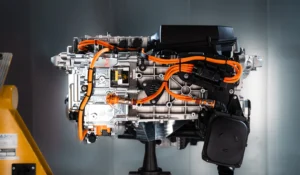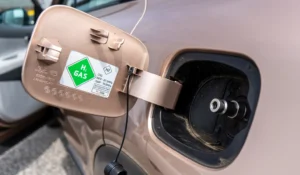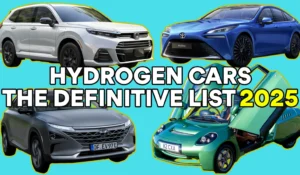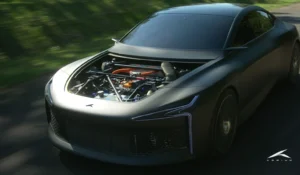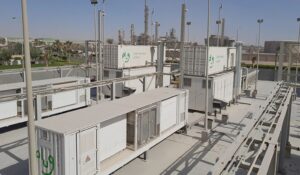Biden-Harris Administration backs US hydrogen industry with $62million investment

The Biden-Harris Administration has announced a $62million boost for America’s hydrogen sector, funding 20 projects across 15 states.
The initiatives aim to advance hydrogen infrastructure, from developing futuristic hydrogen refuelling stations to hydrogen-powered equipment for ports.
The goal being; to accelerate the clean hydrogen economy, slash emissions, and create good-paying jobs.
The administration’s vision is for clean hydrogen to play a critical role in decarbonising sectors like heavy-duty transport and manufacturing.
This investment is another step toward America’s clean energy future.
A US-wide push for hydrogen
Hydrogen technology is taking centre stage in the U.S. clean energy transition.
The $62million announced by the U.S. Department of Energy (DOE) will fund projects focused on improving hydrogen infrastructure, vehicle fueling stations, and fuel-cell-powered equipment.
These projects align with the Biden-Harris vision for a clean hydrogen economy that creates thousands of jobs while addressing climate challenges.
According to U.S. Energy Secretary Jennifer Granholm, “America is leading the world in clean hydrogen development,” with this investment laying the foundation for long-term innovation and sustainability.
Key areas of investment
The projects, managed by the DOE’s Hydrogen and Fuel Cell Technologies Office (HFTO), target five specific areas of development:
- Hydrogen refuelling for medium and heavy-duty vehicles: $8.5million will go towards developing advanced components for hydrogen fueling stations catering to larger vehicles.
- Hydrogen refuelling stations of the future: the largest allocation – $40million – is set for creating scalable, low-cost hydrogen fueling stations that can support commercial-scale truck refuelling.
- Port equipment powered by hydrogen: a single project worth $2.5million will focus on hydrogen-powered port equipment, such as fuel cell top loaders.
- Safety for hydrogen deployment: $7million will help address the challenges associated with permitting hydrogen installations.
- Community engagement for hydrogen technology: $4million will ensure community involvement, with projects focused on improving hydrogen tech awareness in disadvantaged communities.
Hydrogen’s key role in clean energy
Hydrogen is poised to play a pivotal role in decarbonising sectors that are difficult to electrify, including heavy-duty transportation, industrial processes like steelmaking and more.
The DOE views hydrogen not only as a flexible energy carrier but also as a critical element in reducing emissions from high-pollution sectors.
It can also provide long-duration energy storage, further supporting renewable energy expansion across an already strained electric grid.
The clean hydrogen economy is expected to create tens of thousands of jobs while strengthening American energy independence.
These projects are an essential part of building that infrastructure – providing the tools necessary to ensure hydrogen’s role in the future energy landscape.
Engaging communities and ensuring equity
In line with the Biden Administration’s focus on environmental justice, these projects will prioritise community engagement.
Over $14million of the funding will go toward projects that engage disadvantaged communities, ensuring that the benefits of hydrogen technologies reach all corners of society.
This is part of the broader Justice40 initiative, which aims to direct at least 40% of the benefits of federal climate and clean energy investments to disadvantaged communities.
Projects focusing on permitting and safety will also develop best practices for engaging with local communities. The goal is to make sure that as hydrogen infrastructure expands – everyone benefits, and concerns around safety and equity are addressed upfront.
What does the future hold?
The investment complements the DOE’s broader clean hydrogen agenda, including its Regional Clean Hydrogen Hubs and the Hydrogen Interagency Task Force.
These efforts, combined with tax incentives from the Inflation Reduction Act, aim to accelerate progress toward a thriving hydrogen economy.
By developing new technologies and focusing on community engagement, the U.S. is positioning itself as a global leader in hydrogen innovation.

